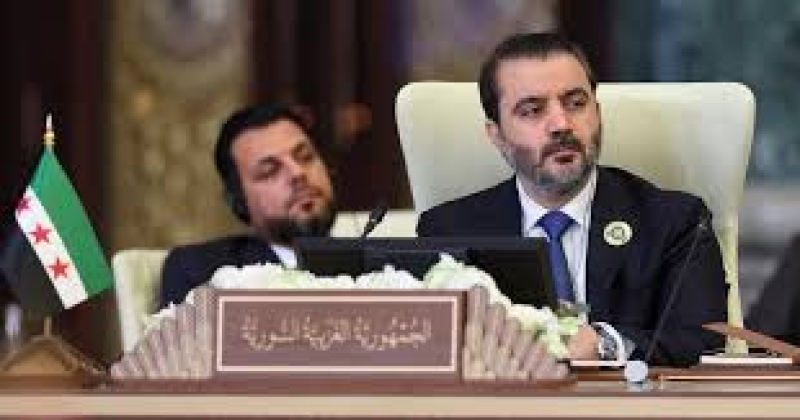- India Sees 9% Drop in Foreign Tourists as Bangladesh Visits Plunge |
- Dhaka Urges Restraint in Pakistan-Afghan War |
- Guterres Urges Action on Safe Migration Pact |
- OpenAI Raises $110B in Amazon-Led Funding |
- Puppet show enchants Children as Boi Mela comes alive on day 2 |
Trump admin begins initial efforts to relax sanctions on Syria

On Friday, the Trump administration initiated major exemptions to longstanding U.S. sanctions on Syria, marking a significant step toward President Trump's commitment to end decades of punitive measures against a nation devastated by 13 years of civil war.
Though sweeping, these exemptions are temporary and could be reversed. Syrians argue that only permanent relief can attract the tens of billions in investment needed to rebuild a country torn apart by war, displacement, and foreign militias.
The State Department issued a six-month waiver on harsh sanctions introduced by Congress in 2019, while the Treasury Department paused enforcement on penalties targeting those doing business with various Syrian entities, including the country’s central bank.
Syria is currently governed by Ahmad al-Sharaa, a former militia leader who played a role in ousting longtime ruler Bashar al-Assad last year.
President Trump stated last week that easing sanctions is intended to give Syria’s transitional government a chance to stabilize. The administration described the move as an opening for renewed investment and progress, calling it “a fresh start.”
Mouaz Moustafa, a Syrian American advocate for sanctions relief, said this approach could finally offer Syria a path to democracy, avoiding the collapse into a failed state.
The 2019 Caesar Syria Civilian Protection Act was designed to isolate Assad’s regime and hinder post-war reconstruction efforts. Though executive orders can waive these sanctions for 180 days, investors remain cautious due to the uncertainty of their permanence.
Friday’s decisions, the administration said, are part of a broader strategy to dismantle the full framework of sanctions levied against the Assad regime, which were imposed due to ties with Iran-backed groups, use of chemical weapons, and human rights abuses.
Conditions and Expectations
Secretary of State Marco Rubio emphasized that Trump expects swift policy reforms in exchange for the relief. However, skepticism lingers due to al-Sharaa’s history — his faction, Hayat Tahrir al-Sham, was once aligned with al-Qaida, despite later renouncing the affiliation. The group remains on the U.S. terrorist watchlist.
U.S. officials warn that failure by al-Sharaa’s government could trigger renewed conflict and open the door for extremist groups like ISIS to regain ground.
“We had to engage. Not engaging would’ve guaranteed failure,” Rubio told Congress, noting that sanctions needed to be lifted urgently as Syria’s interim leadership could be on the brink of collapse.
Trump met with al-Sharaa in Saudi Arabia last week, a day after announcing the rollback: “We’re taking them all off. Good luck, Syria. Show us something special.”
Despite the urgency, Rubio said the administration prefers an “incremental” approach to permanent relief.
While executive action can quickly waive some penalties, removing congressional sanctions permanently would require legislation. Within the administration, there’s division — some officials advocate for immediate broad relief, while others prefer a phased strategy, tying further relief to conditions being met by Syria’s government.
One plan under discussion involves a three-phase process: beginning with temporary waivers, followed by stricter conditions for deeper relief, and ultimately, a complete lifting of sanctions.
Conditions for phase two include eliminating “Palestinian terror groups” from Syria, which some say is too vague to enforce. Other requirements involve taking custody of Islamic State detainees and integrating U.S.-allied Kurdish forces into the national military.
Phase three would demand Syria normalize relations with Israel by joining the Abraham Accords and verifiably dismantle Assad-era chemical weapons.
Israel remains wary of Syria’s new leadership, despite statements from Damascus indicating no intent to engage in conflict. Since Assad's fall, Israel has launched numerous airstrikes and occupied parts of a U.N.-buffer zone within Syrian territory, reports UNB.

